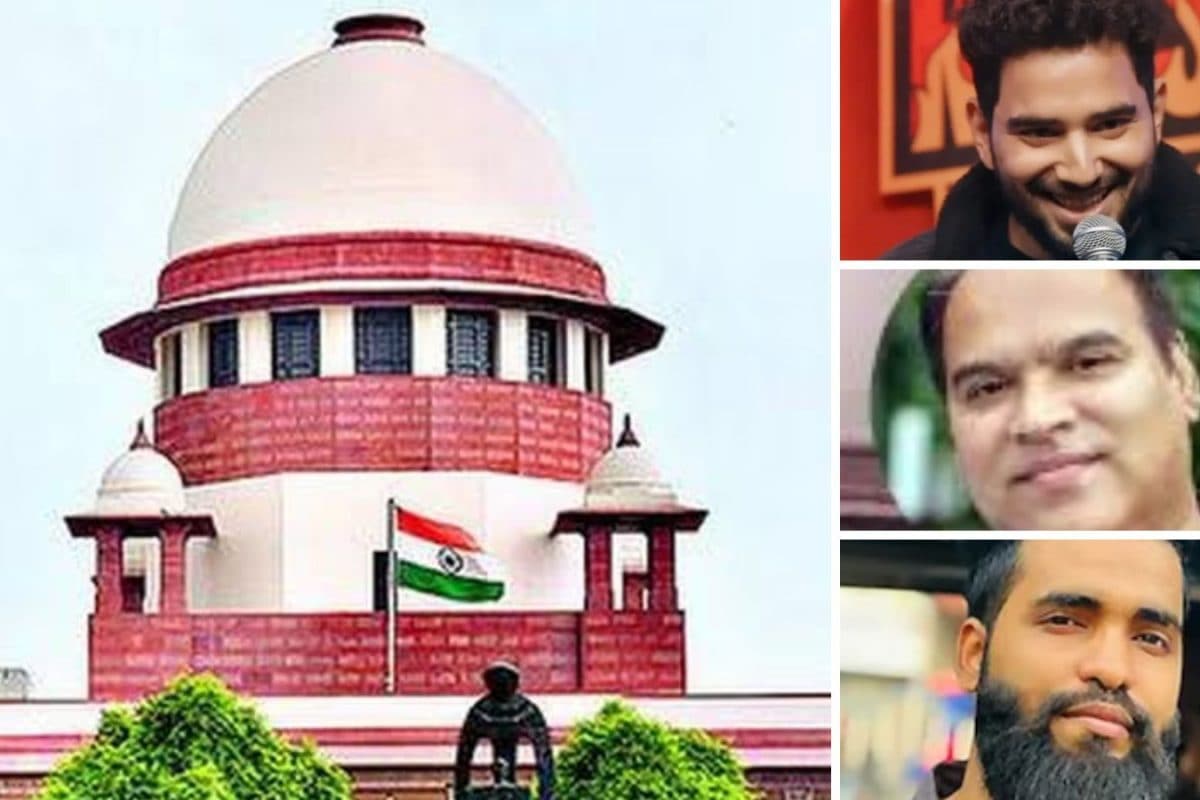

The Supreme Court of India has recently reiterated that the right to freedom of speech and expression, a fundamental right guaranteed under Article 19 of the Constitution, is not absolute. This message was conveyed through the handling of cases involving individuals like Samay Raina, Hemant Malviya, and Wajahat Khan, highlighting the increasing concern over the misuse of this right, especially on social media platforms.
The apex court's observations are particularly relevant in the current digital age, where social media has amplified voices but also created avenues for abuse, hate speech, and the spread of misinformation. The court's message underscores the importance of balancing free speech with the need to maintain social harmony, respect individual dignity, and prevent the misuse of the legal system.
In the case involving stand-up comics and podcasters like Samay Raina, the Supreme Court, comprising Justices Surya Kant and Justice Joymalya Bagchi, addressed concerns regarding "objectionable remarks" made during their shows. The court has asked the influencers to respond to a petition that flagged their objectionable remarks on persons with disabilities. This scrutiny indicates the court's willingness to examine instances where freedom of expression may be used to demean or marginalize vulnerable groups.
Another case involved cartoonist Hemant Malviya, who faced charges for allegedly sharing objectionable cartoons of Prime Minister Narendra Modi and RSS workers on social media. Justices Sudhanshu Dhulia and Aravind Kumar, while granting Malviya relief, voiced strong disapproval of the abuse of freedom of speech and expression. The court cautioned that if Malviya continued to share offensive social media posts, the Madhya Pradesh government could take action.
In the matter concerning Wajahat Khan, who is accused of posting objectionable content against a Hindu deity on X, a bench of Justices B V Nagarathna and K V Viswanathan emphasized the importance of citizens understanding the value of freedom of speech and expression. The court questioned why citizens could not regulate themselves, highlighting the need for self-restraint and responsible exercise of free speech. It was Khan's complaint that led to the arrest of influencer Sharmistha Panoli, whom he accused of posting derogatory content on Islam. The court observed that fundamental duties, such as upholding the unity and integrity of the country, are being violated by divisive tendencies on social media and must be curbed.
These cases collectively illustrate the Supreme Court's concern over the abuse of freedom of speech, particularly online, which leads to hatred, increased litigation, and a clogging of the criminal justice system. The court has urged citizens to show restraint and highlighted that freedom of speech is not a license to say anything to anyone without consequences.
The Supreme Court has long recognized that freedom of speech is not absolute and is subject to reasonable restrictions. These restrictions are often related to the time, place, and manner of speech, and certain categories of speech receive lesser or no protection under the First Amendment, such as incitement to violence, defamation, obscenity, and speech that violates intellectual property law. The government can also restrict speech, especially concerning government employees and students in public schools, when that speech is incompatible with their status.
The core message from the Supreme Court is a call for a balance between the right to free expression and the responsibility to exercise that right with restraint and respect for the rights and dignity of others. The Court has also tasked the Attorney General to draft social media guidelines that balance freedom of speech and expression and rights of others. This balance is essential to maintain a healthy democracy where diverse opinions can be expressed without inciting hatred, violence, or the erosion of social harmony.